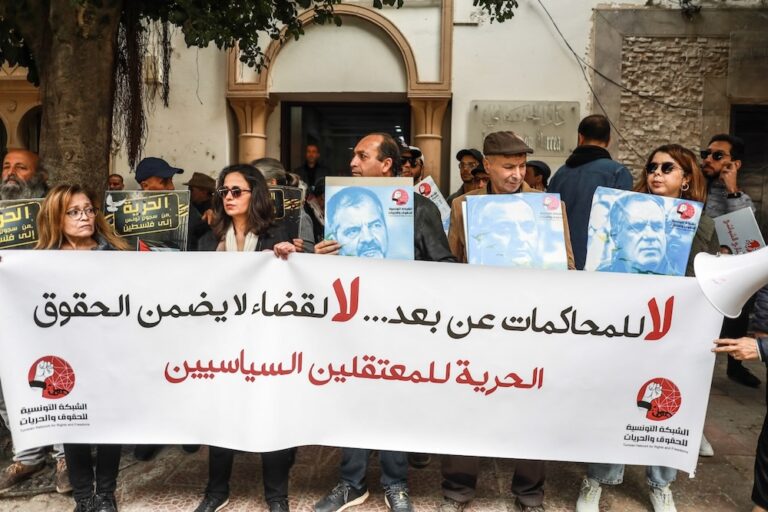Members of the Progressive Democratic Party and newspaper readers were surprised to find "AlMowqef" weekly missing from distribution outlets.
(ANHRI/IFEX) – The Arabic Network for Human Rights Information has reported that the Tunisian government, on 16 July 2010, confiscated “AlMowqef”, the weekly newspaper of the Progressive Democratic opposition party, without giving any justification and without a court order being issued.
Members of the Progressive Democratic Party and newspaper readers were surprised to find the paper missing from all distribution outlets, without justification. The Tunisian government as usual did not take the trouble to provide any reason for the confiscation. It is possible that the reason is the article in the paper about the future of the Republic in Tunisia, in light of expectations to amend the Tunisian constitution for the fifth time to allow the Tunisian president to remain in power after 2014. By then, he would be 78 years old and the current constitution states a maximum of 75 years of age to be a nominee for the presidency.
The last issue of “AlMowqef” newspaper was confiscated soon after the arrest of the independent journalist AlFahim Bukadous and his detention in Gafsa prison, hundreds of kilometers from the Tunisian capital, after an unjust verdict that sentenced him to four years of imprisonment in a fabricated case, despite his illness. This was a result of his refusal to accept an offer to be lenient with the Tunisian government in return for a pardon and benefits, a compromise that was accepted by some of the accomplices and those who turned on the opposition.
This is the second confiscation of “AlMowqef” in 2010. It was earlier confiscated in March, due to its reporting on human rights in Tunisia.
Gamal Eid, executive director of ANHRI, said “In the coming days, we will not be surprised to see the Tunisian government paying for some propaganda pieces in some complicit newspapers, praising press freedom in Tunisia, and congratulating the Tunisian president on his wise leadership. We are accustomed to this attitude of the Tunisian government. Following each violation of freedom of the press and expression in Tunisia comes a misleading advertising campaign to divert attention from the reality of the dire situation in this country, plagued with blunt dictatorship.”


